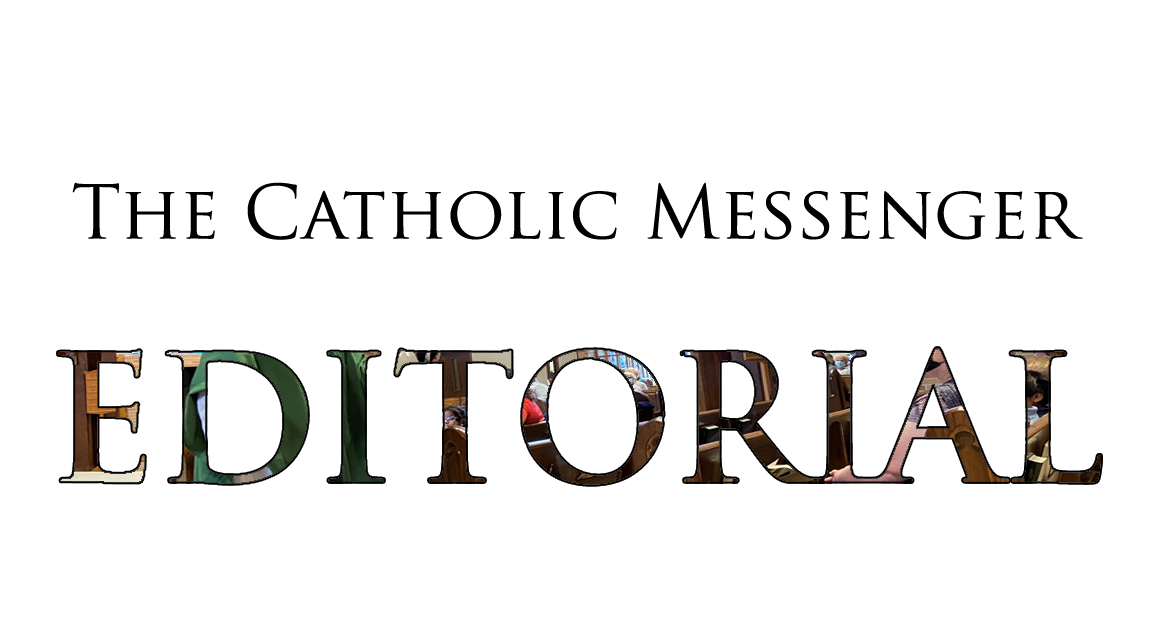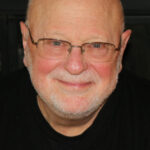
Archbishop John Wester of the Archdiocese of Santa Fe, New Mexico, recalled a visit to Hiroshima and Nagasaki, two Japanese cities decimated by atomic bombs nearly 80 years ago. It was the first and only use of nuclear weapons in war. In an exhibit he viewed, “I read about school children in Hiroshima who, on that fateful morning in August 1945, ran to the windows, attracted by a bright light. I wonder how many were running to their deaths, either instantaneously incinerated or dying later in agonizing pain. Normally, light brings new life and clearer vision. Not that day. Sadly, the light generated by the first nuclear explosion used in war brought only destruction and death.”
That excerpt comes from Archbishop Wester’s pastoral letter, “Living in the Light of Christ’s Peace: A Conversation Toward Nuclear Disarmament,” which he referred to during his July 21 virtual presentation for JustFaith Ministries on Zoom. The title of the presentation, “An Urgent Conversation Toward Nuclear Disarmament” comes during a time of mounting global tensions and threats of nuclear weapon use. The 77th anniversary of the devastation inflicted on Hiroshima (Aug. 6) and Nagasaki (Aug. 9) ought to serve as a reminder to restart the conversation on nuclear disarmament.
“People don’t want to think about it,” Archbishop Wester said. “It is a difficult subject, but it needs to be addressed.” He is not an alarmist. Russian President Vladimir Putin announced shortly after his country’s Feb. 24 invasion of Ukraine that Russia’s deterrent forces, including nuclear weapons, would be placed on a “special regime of alert” (Stifung Wissenschaft und Politik, https://tinyurl.com/h65unyv6). Meanwhile, Japan, which in its 1947 constitution renounced war and aspired to international peace, now highlights its need for military buildup because of “escalating security threats stemming from Russia’s war on Ukraine and China’s tensions with Taiwan” (Quad-City Times, 7-23-22).
The Archdiocese of Santa Fe is at ground zero in the nuclear disarmament issue because Los Alamos Scientific Laboratory, which produced the first atomic bombs used in World War II, is located in the diocese. Just 35 miles northwest of Santa Fe, the laboratory is the “primary nuclear weapons research facility in the United States” (britannica.com).
“Support for nuclear disarmament and non-proliferation is solidly rooted in Catholic social teaching on war and peace,” Archbishop Wester points out in his pastoral letter. Nuclear disarmament and non-proliferation have been “emphasized by Pope Saint John XXIII, the Documents of Vatican II, Pope Saint Paul VI, Pope Saint John Paul II, Pope Emeritus Benedict XVI, and most recently our current Holy Father, Pope Francis. In addition, the U.S. Bishops have advocated for nuclear disarmament and non-proliferation.”
In 2020, the bishops thanked Pope Francis for a “renewed effort to bring about a world of peace and justice that is not based upon fear or the threat of nuclear annihilation but justice and solidarity.” Our government, they said, ought to be “part of and indeed renew its primary responsibility in that effort.” Nations with nuclear weapons (Russia and the U.S. having by far the most) “must take the lead in mutual reduction of their weapons. The non-nuclear nations too must refrain from pursuing them if Article VI of the NPT (Treaty on the Non-Proliferation of Nuclear Weapons) is to be the effective instrument to bring about the elimination of all nuclear weapons.”
The U.S. and Russian Federation did agree to extend the Treaty on Measures for the Further Reduction and Limitation of Strategic Offensive Arms, also known as the New START Treaty through Feb. 4, 2026. The treaty “enhances U.S. national security by placing verifiable limits on all Russian deployed intercontinental-range nuclear weapons” (state.gov/new-start/).
All of today’s pressing issues — the right to life, food, shelter, clothing, work, respect, fair governance and care of the earth — become moot with the use of nuclear weapons, which have the capability of poisoning the entire earth. We cannot live with nuclear weapons.
Pope Francis calls us to right relationships with God, with other people and with the earth, of which we are stewards. Conversation is a critical component of building relationships and fostering the peace that Japan aspired to in its 1947 constitution, crafted in the midst of great suffering because of nuclear weapons.
Here in the Diocese of Davenport, let’s talk. Encourage your parish to begin the conversation about nuclear weapons and disarmament by reading together the following documents:
• Archbishop Wester’s pastoral letter, Jan. 11, 2022 (https://tinyurl.com/26ycdb94).
• The Address of the Holy Father on Nuclear Weapons, Nov. 24, 2019 (https://tinyurl.com/ycyyccjw).
• The Catholic Church and the Treaty on the Prohibition of Nuclear Weapons, December 2019 (https://tinyurl.com/3fdth3ck).
• Message of Pope Francis on the First Meeting of States Parties to the Treaty on the Prohibition of Nuclear Weapons, June 21, 2022 (https://tinyurl.com/yckpn46z).
Other proactive measures:
• Participate in the Virtual Rally and Action for Nuclear Disarmament, Aug. 6, 11 a.m. and Aug. 9, 11 a.m. (For information, go to https://enlightenedfilms.com/August-Rally).
• Join organizations such as JustFaith Ministries (justfaith.org) or Pax Christi USA (paxchristiusa.org).
• Advocate for funding for people not weapons first in the federal budget (https://www.cbo.gov/).
• Pray.
Archbishop Wester said the voices of the children who died 77 years ago in Hiroshima and Nagasaki echo through the ages. They call us to right relationships for the sake of all of humankind.
Barb Arland-Fye, Editor
arland-fye@davenportdiocese.org











